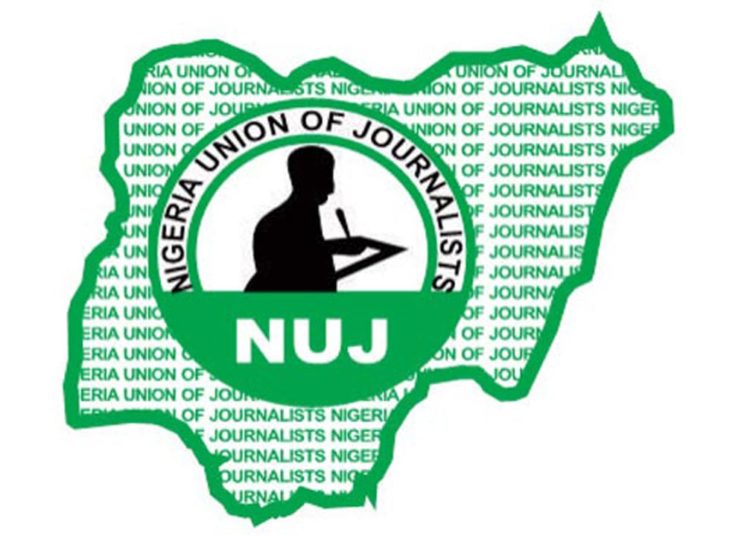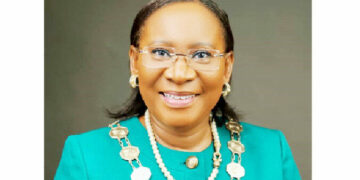Some civil society organisations (CSOs) and human rights groups have condemned the continued crackdown on journalists and labour leaders by the federal government.
LEADERSHIP Weekend’s investigation revealed that 45 journalists were arrested, harassed and detained by agents of the federal government between 2023 and 2024.
While 39 journalists incurred the onslaughts of the police, operatives of the Department of State Services (DSS) and other Nigerians for carrying out their lawful duties in 2023, six faced the same plight this year.
In a reaction to the development, the country director of Amnesty International (AI) Isa Sanusi said the Nigerian government was going too far in its repressive efforts to gag dissenting voices.
Sanusi told LEADERSHIP Weekend that the government must end its escalating crackdown on the civic space and independent human rights groups.
He said, “Amnesty International received a disturbing report of the unlawful invasion of the Abuja office of Socio-Economic Rights and Accountability Project (SERAP) by operatives of the DSS. President Bola Tinubu is going too far in his government’s repressive efforts to gag dissenting voices.
“The government of President Bola Tinubu should immediately instruct the DSS to stop their harassment and intimidation of SERAP and any other civil society groups in Nigeria simply for carrying out their legitimate work.”
Also, the Network Against Corruption And Trafficking (NACAT) has condemned what it described as “the alarming trend of arrests, detentions, and harassment of investigative journalists by the Nigerian government”, noting that “this egregious assault on press freedom not only undermines the core principles of democracy but also violates the fundamental rights enshrined in both the Nigerian Constitution and international human rights instruments.”
The CSO, in a statement signed by its operational manager, Stanley Ugagbe, said “in a horrendous show of power-drunk, since May this year, at least five high-profile investigative journalists have been unlawfully arrested, detained, and subjected to intimidation and threats by government agents.
“As an organisation that promotes human rights, we are deeply concerned that a Nation like Nigeria that is practising democracy is clamping down on the rights of journalists, deploying government arsenal to suppress their voices and subjecting them to inhuman treatment.
“Disturbing records in the public domain have it that Daniel Ojukwu, a reporter with the Foundation for Investigative Journalism (FIJ) was detained by the agents of the government. His ‘crime’ was uncovering the truth about a fraudulent government transaction,” he said.
It was learnt that in the last one year, security agencies have carried out major raids, arrests and summons, among which journalists top the list of the cases, with allegations of cybercrime, money laundering, felony, and treason among others.
Aside from the pen-pushers, one of the high-profile raids and summons, which also led to his arrest, was that of the president of the Nigeria Labour Congress (NLC), Joe Ajaero, who was severally invited by the Nigeria Police Force for allegations of treason and other heinous claims.
On August 19, 2024, the Nigerian Police, yesterday, invited Ajaero, for questioning over alleged criminal conspiracy, terrorism financing, treasonable felony, subversion and cybercrime in which he was mentioned.
The letter dated August 19, 2024 stated: “This office is investigating a case of criminal conspiracy, terrorism financing and treasonable felony, subversion and cybercrime in which you were mentioned.”
While Ajaero was trying to handle his case with the police, the Department of State Services (DSS), also arrested him on September 9, 2024, while on his way to the United Kingdom for official function.
After public outrage and condemnation from the public, Ajaero was released later in the night.
Other major arrests include the arrest that of investigative journalist, Daniel Ojukwu over allegations of cybercrime.
Ojukwu, who works with Foundation for Investigative Journalism (FIJ) was said to have been arrested on May 3, 2024.
According to the FIJ, the reporter was abducted by the Intelligence Response Team (IRT) of the inspector- general of police.
The FIJ stated that “upon discovering his unknown destination and finding his phone switched off, it initially filed a missing person report at police stations in the area where Ojukwu was believed to have been headed on Thursday, May 2.
Also, WikkiTimes’ publisher and editor-in-chief Haruna Muhammed Salisu was detained for days before being taken to court while covering the February 2023 poll in Alkaleri, Bauchi State.
Yakubu Mohammed, ex-WikkiTimes’ editor was harassed for exposing terrorism financing, illegal mining in Niger State in September 2023.
In Nasarawa, officials of the Nigeria Security and Civil Defence Corps (NSCDC) attacked a journalist with Breeze FM in Lafia, Edwin Philip, while reporting the governorship and state House of Assembly elections in Nasarawa on March 18.
Also on the same day, a journalist with Premier Radio, Ashiru Umar, was attacked by armed thugs while covering the poll in the Gwale local government area of Kano state.
The police also detained a reporter with Punch newspaper and threatened to shoot him during the elections. He was driven around Port Harcourt city, and images taken with his phone were deleted before he was released.
On February 21, 2024, a journalist Kasarahchi Aniagolu, of The Whistler newspaper was detained, assaulted, and hit with a gun by police officers while reporting on a police raid in Wuse, Abuja.
On February 23, 2024, soldiers arrested and handcuffed a journalist, Dele Fasan, South-South Bureau Chief of Galaxy Television, hitting him with a gun as he was filming at a protest scene in Delta State.
On March 15, 2024, armed men, including individuals in military-style uniforms, arrived at the home of Segun Olatunji, editor of First News, forcing him to come with them without explanation.
On August 5, Isaac Bristol (PIDOM), a microblogger known for his investigative work, was abducted from his hotel room in Port Harcourt by 15 plainclothes policemen.
On August 27, Adejuwon Soyinka, West Africa editor for The Conversation Africa, was detained by the DSS for six hours.
Meanwhile, protesters are not also left out in the harassment and arrests.
During the nationwide hunger protest in August, 2024, security agencies fired bullets and teargas at several journalists and protesters in the capital city, Abuja and some part of the country.
There are reports, which claimed that at least 50 protesters were arrested during the protests in Abuja.
However, Amnesty International’s Nigeria office said nearly 700 protesters have so far been arrested across the country.
Fisayo Soyombo, the founder and editor-in-chief of FIJ, was detained for eight hours by the Nigeria Police Force National Cybercrime Centre in Abuja on August 14.
Abdulrasheed Hammad, a freelance journalist, was threatened by the DSS after publishing an investigative story on contaminated water in Sokoto State.





